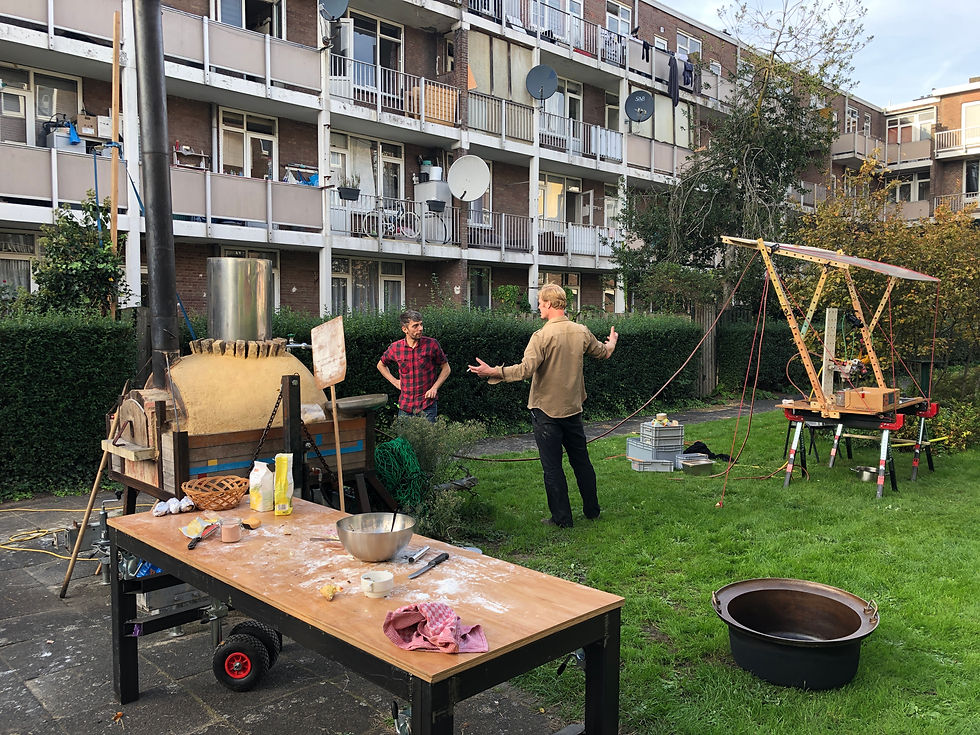Transformative learning: how do we develop capacities for action toward a future we want to live in?
- Louwrens Botha
- Mar 27, 2024
- 3 min read
On March 21st we kicked-off the CoNECT webinar series with a discussion of transformative learning. We live in an era of poly-crises which challenges us to constantly adapt to new circumstances. Learning is a clear prerequisite for societal transformations, but the current situation offers relatively few opportunities for the kind of learnings needed to find avenues for real transformation. Whether in the classroom or in the community, formally or informally, at all ages and levels of ability, how we teach and learn marks our ability to spot opportunities for intervention, connect dots, and create relationships that enable change. Hence, aligning with the goal of the CoNECT project to recognize and enhance capacities for action, this first event focused on the practices of learning to inform resilient transformations.
Professor Ashraf Salama’s thoughtful presentation traced the intellectual history of transformative pedagogies in architecture and urbanism, from the ‘unquestioned canonical’ schools of the 19th and early 20th centuries, through the experimental phase of the 1960s, 1970s and 1980s, with critical, participatory, digitally enabled, and design-build pedagogies establishing a foothold in different architectural schools, to the current moment where a new wave of transformative pedagogies focuses on redefining the everyday, decolonizing thought, questioning the hidden curriculum, and advancing transdisciplinarity. Key to transformative learning practices is to recognize their plurality, their focus on holistic learning rather than overly disciplinary education, and their commitment to challenging power structures and established systems. In the context of urban and architectural training it means that alongside skills that distinguish architectural and urban design as professions, there is a need for students to continuously question the brief, to develop skills for social analysis, and to connect design thinking with a focus on challenging the status quo. A (somewhat rhetorical) question inquired into whether we even need architects in the traditional sense in today’s society. What will the role of the architect be in the near future, and are we sufficiently preparing students to become mediators, facilitators, organizers and connectors...?

Dr Antonija Bogadi, representing the Circular City Challenge (CCC) project of the JPI-ENUTC funding scheme, delivered a passionate complementary presentation introducing the CCC methodology for circularity education for teenagers. The methodology puts into practice many of the principles of transformative pedagogies through the application of a participatory approach aimed at addressing everyday challenges in urban neighborhoods, empowering youth to act, to reach out to other stakeholders, and to define realizable projects promoting circularity within their own sphere of influence. The CCC project developed a set of tools available for educators, alongside the stepwise approach to engaging with teenagers. The application of the methodology in the first pilots suggests that, despite high level of climate anxiety, youth find that getting a grip on how they might make a difference, and reaching out to other actors in their communities that are active in circularity initiatives, develops a sense of agency and empowerment.

The discussion following the talks gave the floor to participants from various backgrounds to bring in their own perspective on the topics. Importantly, it was evident that the need for non-canonical and/or transformative learning opportunities was perceived as pressing in many different domains, from law to industrial design, and in relation to different stages of education from formative years to life-long learning. Furthermore, participants gave evidence of both forward steps (towards different variants and understandings of transformative learning) and backward steps - testifying to the challenges of promoting transformative practices, especially in formal education where the confines of existing models can be stultifying. Nevertheless, the discussion remained optimistic, ending with a few interventions that broadened the scope of education toward professional practice and the need for spreading transformative pedagogies across borders (the example talked about a project working with Ukrainian architects to increase their capacity to act in reconstruction processes).
We look forward to welcoming you to the next installment of this series in mid-June. We will discuss urban commons in the context of JPI-ENUTC projects, as well as hearing from a guest speaker, and presenting a brief peek into the exhibition ‘Together Tomorrow: Redefining Everyday Practices’ (working title) put together by architecture and urbanism students at Eindhoven University of Technology.





Comments